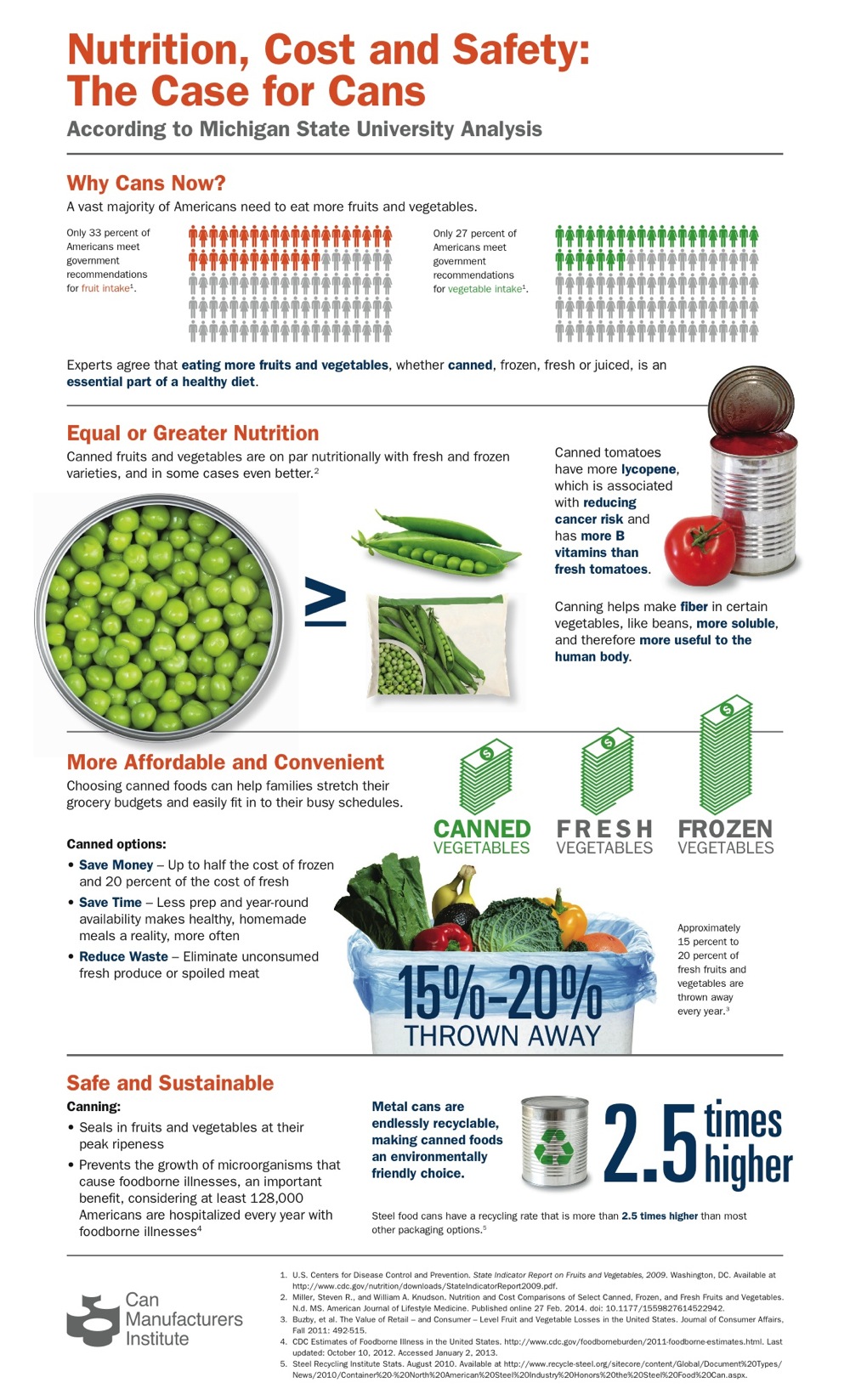The vast majority of Americans need to eat more fruits and vegetables. In fact, only 33 percent and 27 percent of Americans meet government recommendations for fruit and vegetable intake, respectively. And finding foods that are nutritious, affordable and safe can be difficult. But a recently published Michigan State University (MSU) study shows that canned foods offer all that, and more, helping people increase their fruit and vegetable intake, regardless of what area of the country they live, what time of year it is or how much money they make.
The MSU study analyzed more than 40 scientific journal studies and nutrition data, comparing canned fruits and vegetables to fresh and frozen, based on nutrition and cost. The key benefits of canned foods included:
• Canned fruits and vegetables are on par nutritionally with fresh and frozen counterparts, and in some cases even better. Canned tomatoes, for example, have more lycopene, which is associated with reducing cancer risk, and more B vitamins than fresh tomatoes. Canning also helps make fiber in certain vegetables, like beans, more soluble, and therefore more useful to the human body.
• Families can stretch their grocery budgets by choosing canned produce. Canned vegetables are often more affordable than fresh and frozen varieties, helping save up to half the cost of frozen and 20 percent of the cost of fresh, with virtually no sacrifices in nutritional quality. A separate study found that 15 percent to 20 percent of fresh fruits and vegetables purchased each year are wasted, making canned foods a smart choice for both the pocketbook and the environment.
• Canned fruits and vegetables provide great tasting, safe options to help Americans meet their dietary needs. The high-heat canning process is one of the safest for protecting food because it prevents the growth of microorganisms that cause foodborne illnesses. This is an important safety benefit considering that at least 128,000 Americans are hospitalized every year with foodborne illnesses.
“Canned fruits and vegetables provide high quality nutrition to Americans regardless of income level and geography,” said Steven Miller, Ph.D., lead researcher and assistant professor at MSU’s Center for Economic Analysis. “By increasing accessibility to key nutrients many Americans need, canned foods are a year-round solution to help families prepare healthier, balanced meals.”







